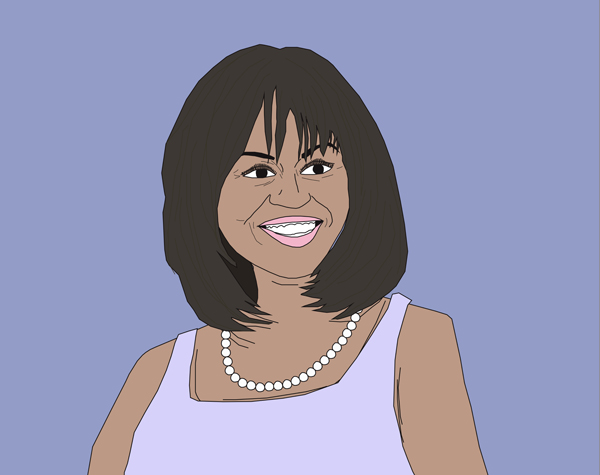On Feb. 5, a crowd of 10,000 welcomed the 2018 Bell International Speaker Series (BISS) guest Michelle Obama to the Chambre de commerce du Montréal métropolitain (CCMM). Obama presented a talk on womanhood and the power of collective organization, drawing upon her background as an activist, Princeton and Harvard graduate, lawyer, and former first lady of the United States.
Before that, however, she began with a humble anecdote about her eldest daughter, a first year student at Harvard, whom she visited at school earlier this year.
“I got some mommy-time […when my daughter Malia] came to my hotel and we cuddled in bed,” Obama said. “And she said something really sweet. She said, ‘Mom, you showed me how to be a strong woman.’”
Obama hoped that the experience would resonate with audience members, many of whom were university-aged women like Malia. The anecdote also introduced what would be a central theme of Obama’s discussion: The intersection between education and women’s empowerment.
“Education is the foundation for any and everything I’ve been able to accomplish in my life,” Obama said. “It is the only thing that creates equality across society.”
Obama related topics like the current U.S. political climate to her central idea of education and its value for society.
“We need an educated electorate,” Obama said. “We need young people, we need citizens who are able to analyze and break down arguments and to figure out what’s right and wrong.”
The former first lady also used her platform to discuss a variety of intersectional feminist issues including the challenges black women encounter in higher education.
“There were people that told me that I shouldn’t apply to the universities I applied to, that I shouldn’t reach too high,” Obama said. “They had set a bar for me only based on the colour of my skin.”
Obama went on to share some of her accomplishments to this end during her tenure as first lady, including an initiative she developed called Reach Higher, which equips young people with tools to continue their education beyond high school.
She also called on the wealthy male contingent in attendance to re-evaluate their hiring practices to include more women. This same respectful-yet-determined attitude, albeit more tongue-in-cheek, shone through in her response to interviewer Sévrine Labelle, who asked to which time period Obama would travel back if she could.
“This is a tough one, because look, I’m black, so I don’t really want to go back,” Obama said.
According to CCMM President Michel Leblanc and organizer of (BISS), attendees of the 2017 series eagerly awaited the former first lady’s appearance as she continues her pursuit of social change, following her departure from the White House.
“When we hosted [former U.S. president Barack Obama] a few months ago, it was an immense success,” Leblanc said. “However, I must say, right after the event, many women and community leaders said, ‘You know, Michel, we want you to invite Michelle Obama. She’s the one that inspires us.”
Given the talk’s theme of equality, some attendees noted the irony of its inaccessibility. Namely, the event’s cheapest tickets exceeded $60 and most of Obama’s introductory speakers—including the Prime Minister of Canada’s spouse Sophie Gregoire-Trudeau, who delivered the opening remarks—were wealthy and white.
“[Before Obama, there] was a lot of white feminist rhetoric,” attendee Tori Ford, U2 Arts, said. “I was like, ‘why are these the people introducing her and not, like, local black community activists?’”








